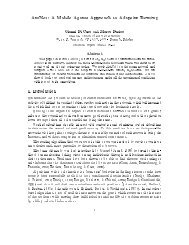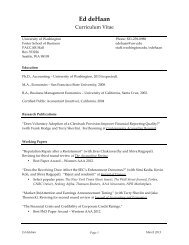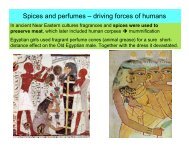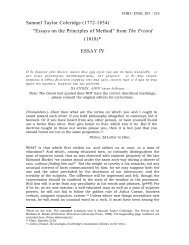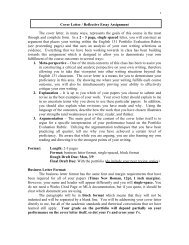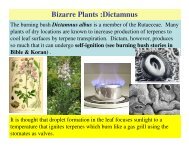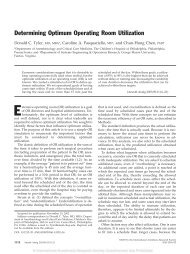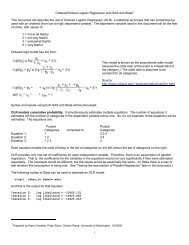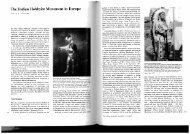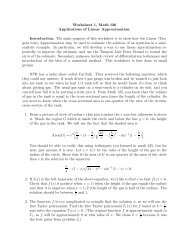The Lasting Presence of Gerard's Herball
The Lasting Presence of Gerard's Herball
The Lasting Presence of Gerard's Herball
Create successful ePaper yourself
Turn your PDF publications into a flip-book with our unique Google optimized e-Paper software.
In his dedication to “Sir William Cecil Knight, Baron <strong>of</strong> Burghley” (1636), Gerard<br />
indicates a desire that his efforts be available to all, that treasures kept to oneself are <strong>of</strong>ten<br />
neglected, forgotten, and therefore wasted:<br />
…because gardens are private, and many times finding an ignorant or a negligent<br />
successor, come soon to ruin, there be that have solicited me, first by my pen, and<br />
after by the Press to make my labors common, and to free them from the danger<br />
whereunto a garden is subject…<br />
He includes an appendix <strong>of</strong> plant names “gathered out <strong>of</strong> ancient written and printed<br />
copies, and from the mouths <strong>of</strong> plaine and simple country people” at the back <strong>of</strong> the<br />
book. Gerard’s comments and the index remind us that many people in both urban and<br />
rural regions <strong>of</strong> England at this time grew herbs and would appreciate a book describing<br />
their characteristics and virtues.<br />
Most people could not afford a physician. Those in the middle and lower classes who<br />
did seek outside medical advice used apothecaries. By the end <strong>of</strong> the 16 th century, most<br />
physicians preferred homegrown herbs to the drugs imported by the apothecaries (Hill,<br />
1975). Thomas Johnson was perhaps acting as a medical pr<strong>of</strong>essional earning a living, as<br />
well as a botanist, when he updated Gerard’s <strong>Herball</strong>. He was quite possibly responding<br />
to public demand for information. In his preface to the 1633 and 1636 editions, Johnson<br />
notes in closing that “…this knowledge [<strong>of</strong> the virtues <strong>of</strong> plants] amongst us in this city<br />
was almost lost, or at least too much neglected, especially by those to whom it did chiefly<br />
belong, and who ought to be ashamed <strong>of</strong> ignorance, especially in a thing so absolutely<br />
necessary to their pr<strong>of</strong>ession.” He is speaking to “my loving friends and fellow<br />
Travellers…<strong>of</strong> the same pr<strong>of</strong>ession”—apothecaries, barber surgeons, botanists, and the<br />
12



